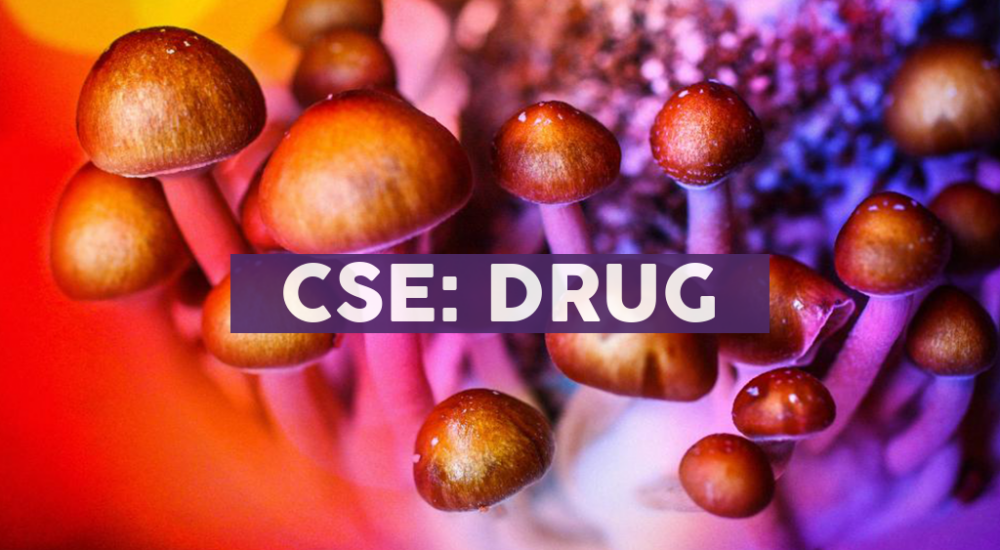— Review of Phase I ready BMB-101 and upcoming milestones —
— Conference call to be held on May 19, 2022, 10:00am ET —
VANCOUVER, British Columbia, April 19, 2022 — Bright Minds Biosciences (“Bright Minds,” “BMB” or the “Company”) (Nasdaq: DRUG) (CSE: DRUG), a biotechnology company focused on developing novel drugs for the targeted treatment of neuropsychiatric disorders, epilepsy, and pain, today announced that Ian McDonald, Chief Executive Officer, Dr. Revati Shreeniwas, Chief Medical Officer, Professor John McCorvy, PhD, Senior Advisor, and other key speakers will host a symposium on the recent therapeutic developments within the Dravet Syndrome landscape. The symposium will also include a panel with Key Opinion Leaders and a Q&A session. In addition, the Company and KOLs will also provide a developmental update on BMB-101, Bright Minds’ lead R&D program for the treatment of Dravet Syndrome.
An archived replay of the presentation will be available on the Company’s website immediately following the conference and will be available for 90 days at: https://brightmindsbio.com/investors/.
Bright Minds further announces that in connection with the entry into three consulting agreements related to scientific services, the Company has issued an aggregate of 60,000 restricted share units of the Company (“RSUs”) pursuant to the Company’s RSU plan, anticipates issuing an additional 25,000 common shares in the capital of the Company (the “Common Shares”). The RSUs are subject to vesting provisions pursuant to which 25% will vest annually, commencing after one year of service, and all Common Shares will be placed in a voluntary escrow, with 25% being released annually, commencing on the one-year anniversary of service. All securities issued are further subject to a hold period of four months and one day from the date of issuance.
About BMB-101
BMB-101, a 5-HT2C selective and biased agonist, has demonstrated compelling activity in a host of in-vitro and in-vivo non-clinical tests. Compared to Locaserin, BMB-101 exhibits strong Gq signaling coupled with minimal beta-arrestin recruitment. Mechanistically, Serotonin (5- Hydroxytryptamine, 5-HT) is a monoamine neurotransmitter widely expressed in the central nervous system, and drugs modulating 5-HT have made a major impact in mental health disorders. Central 5-HT systems have long been associated with the control of ingestive behavior and the modulation of behavioral effects of psychostimulants, opioids, alcohol and nicotine. Over the past decade, the various 5-HT receptor subtypes have been cloned and characterized. Results of clinical trials and animal studies indicate that 5-HT2C up receptor agonists may have therapeutic potential in the treatment of addiction by decreasing the intake of opioids as well as impulsive behavior that can escalate compulsive drug use.
About Dravet Syndrome
Dravet syndrome is an epilepsy syndrome that begins in infancy or early childhood and can include a spectrum of symptoms ranging from mild to severe. Children with Dravet syndrome show focal (confined to one area) or generalized (throughout the brain) convulsive seizures that start before 15 months of age (often before age one). These initial seizures are often prolonged and involve half of the body, with subsequent seizures that may switch to the other side of the body. These initial seizures are frequently associated with fever. Other seizure types emerge after 12 months of age and can be quite varied. Status epilepticus – a state of continuous seizure requiring emergency medical care – may occur frequently in these children, particularly in the first five years of life. Dravet syndrome affects an estimated 1:15,700 individuals in the U.S., or 0.0064% of the population (Wu 2015). Approximately 80-90% of those, or 1:20,900 individuals, have both an SCN1A mutation and a clinical diagnosis of DS. This represents an estimated 0.17% of all epilepsies. As an area of high, unmet medical need, there currently exist only three FDA-approved medications for the treatment of DS: (1) Fintepla® (fenfluramine), which has a black-box label; (2) Diacomit® (stiripentol) and (3) Epidolex® (cannabidiol).
About Bright Minds
Bright Minds is focused on developing novel transformative treatments for neuropsychiatric disorders, epilepsy, and pain. Bright Minds has a portfolio of next-generation serotonin agonists designed to target neurocircuit abnormalities that are responsible for difficult to treat disorders such as resistant epilepsy, treatment resistant depression, PTSD, and pain. The Company leverages its world-class scientific and drug development expertise to bring forward the next generation of safe and efficacious drugs. Bright Minds’ drugs have been designed to potentially retain the powerful therapeutic aspects of psychedelic and other serotonergic compounds, while minimizing the side effects, thereby creating superior drugs to first-generation compounds, such as psilocybin.
Investor Contacts:
Lisa Wilson
In-Site Communications, Inc.
489 Fifth Avenue, 29th Floor
New York, NY 10017
E: [email protected]
Josh Blacher
Bright Minds Biosciences, Inc.
19 Vestry Street
New York, NY 10013
E: [email protected]



